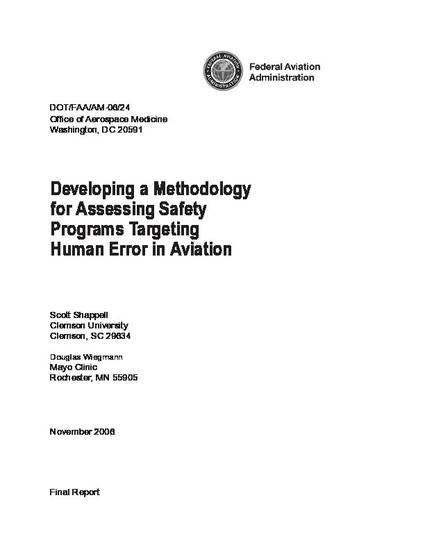
There is a need to develop an effective methodology for generating comprehensive intervention strategies that map current and proposed safety programs onto well-established types of human error. Two separate studies were conducted using recommendations from NTSB accident investigations and several joint FAA and industry working groups. The goal of the studies was to validate a proposed framework for developing and examining safety initiatives that target human error in aviation. The results suggest five approaches to reducing human factors associated with aviation accidents. When combined with the Human Factors Analysis and Classification System, the resulting Human Factors Intervention Matrix will provide a useful tool for evaluating current and proposed aviation safety programs.
Available at: http://works.bepress.com/scott-shappell/100/

Dr. Shappell was not affiliated with Embry-Riddle Aeronautical University at the time this report was published.